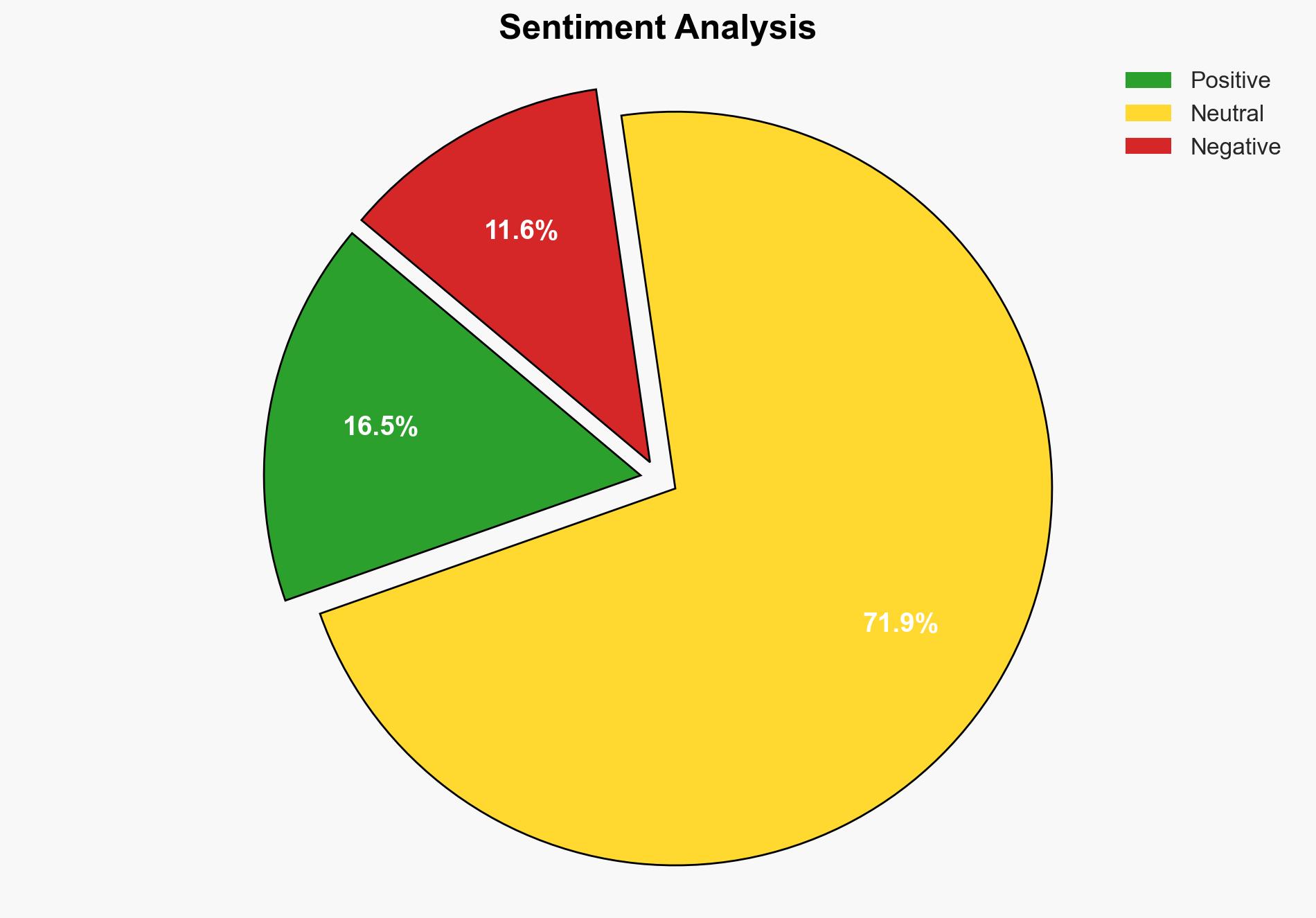Israel blocks all aid into Gaza as Hamas ceasefire phase 1 ends – ABC News
Published on: 2025-03-02
Intelligence Report: Israel blocks all aid into Gaza as Hamas ceasefire phase 1 ends – ABC News
1. BLUF (Bottom Line Up Front)
Israel has imposed a blockade on humanitarian aid into Gaza following the end of the first phase of a ceasefire with Hamas. This decision, coordinated with the Trump administration, comes amid ongoing negotiations for a potential extension of the ceasefire. The Israeli government demands the release of hostages, while Hamas accuses Israel of using humanitarian aid as leverage. The situation remains tense, with potential implications for regional stability and international relations.
2. Detailed Analysis
The following structured analytic techniques have been applied for this analysis:
SWOT Analysis
Strengths: Israel’s strategic coordination with international partners enhances its negotiating position.
Weaknesses: The blockade may exacerbate humanitarian conditions in Gaza, drawing international criticism.
Opportunities: Successful negotiations could lead to a more stable ceasefire and improved regional security.
Threats: Continued hostilities could destabilize the region and escalate into broader conflict.
Cross-Impact Matrix
The blockade and ongoing negotiations are likely to influence neighboring regions, potentially affecting diplomatic relations and security dynamics in the Middle East. The involvement of international mediators such as Qatar and Egypt highlights the interconnected nature of regional politics.
Scenario Generation
Best-case scenario: A negotiated extension of the ceasefire, leading to a reduction in hostilities and improved humanitarian conditions.
Worst-case scenario: Breakdown of negotiations resulting in renewed conflict and regional instability.
Most likely scenario: Prolonged negotiations with intermittent hostilities, maintaining the status quo.
3. Implications and Strategic Risks
The blockade poses significant risks to regional stability, potentially exacerbating humanitarian crises and fueling further conflict. The situation may impact national security interests, particularly if hostilities spread beyond Gaza. Economic interests could also be affected, with potential disruptions to trade and investment in the region.
4. Recommendations and Outlook
Recommendations:
- Engage in diplomatic efforts to facilitate negotiations and secure a sustainable ceasefire agreement.
- Consider humanitarian interventions to alleviate conditions in Gaza and prevent further escalation.
- Enhance intelligence-sharing and coordination with regional partners to monitor developments and mitigate risks.
Outlook:
The outlook remains uncertain, with potential for both escalation and resolution. Continued diplomatic engagement and international pressure may lead to a more stable ceasefire, while failure to address underlying issues could result in prolonged conflict.
5. Key Individuals and Entities
The report mentions significant individuals and organizations involved in the situation:
- Benjamin Netanyahu
- Donald Trump
- Steve Witkoff
- Brian Hughes
- Hazem Qassem
These individuals are central to the ongoing negotiations and decision-making processes impacting the region.





